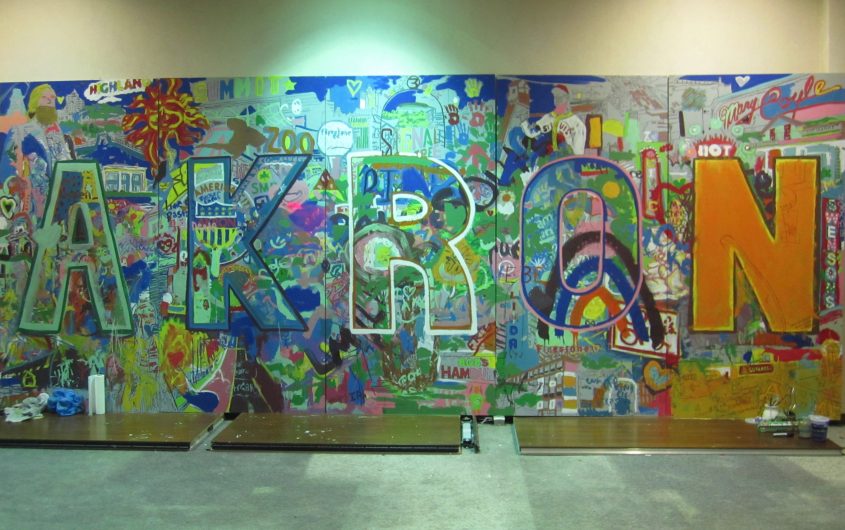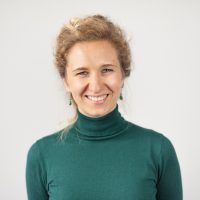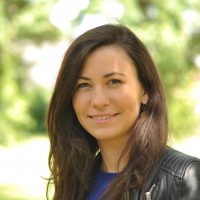
Ohio Redevelopment Project via Flickr
Dusting Off Local Politics: New Ideas for Political Participation in Rust Belt Cities

Alex Baker
Atlantic Council
Alex Pieter Baker is a Project Assistant with the Atlantic Council’s Future Europe Initiative. His work centers on transatlantic digital policy, European Union politics, Germany, and transatlantic relations. Prior to joining the Future Europe Initiative, he served as Executive Assistant to the Executive Vice President at the Atlantic Council. He brings a strong understanding of German culture and politics to the program. As an undergraduate student, he lived in Dessau, Saxony Anhalt, during which time he interned in the Mayor’s office. As a graduate student, he spent a year studying at Freie Universität Berlin. Mr. Baker is also a regular contributor to Bloody Hell Magazine, where his articles examine the intersection of politics and soccer in Germany and beyond.

Elizaveta Firsova
Institute for Didactics of Democracy
Elizaveta Firsova is a research associate and PhD student at the Institute for Didactics of Democracy at Leibniz University of Hanover. Ms. Firsova holds a Master of Arts in Education Studies from Freie Universität Berlin and has focused on the role of education in combatting social division, especially regarding immigrant communities. After her graduation, she worked for "PROOF: Media for Social Justice" in New York City, on curricula in the field of social justice. Currently, Ms. Firsova is a project coordinator for initiatives funded by the European Union to tackle social divisions on different levels. In one project, she focuses on bringing digital media literacy to schools with predominantly disadvantaged students, and in her second project, she is designing a program to target extremism and conspiracy theories in adult education institutions. In her PhD thesis, Ms. Firsova researches the impact of the Israeli-German youth exchange program on participants' political views regarding the Israeli-Palestinian conflict.

Simon Morris-Lange
Expert Council of German Foundations on Integration and Migration (SVR)
Simon Morris-Lange is Deputy Head of Research with the Expert Council of German Foundations on Integration and Migration (SVR), a leading, non-partisan think tank devoted to migration and the integration of first- and second-generation migrants. Before joining SVR, Mr. Morris-Lange served as an analyst with the Illuminate Consulting Group in the San Francisco Bay Area and as Chief Operating Officer with iversity, a Berlin-based edutech company. Mr. Morris-Lange has gained extensive experience in comparative research and evidence-based policy advice through research and leadership development projects in Europe and North America. Mr. Morris-lange writes regularly on immigrant integration, and educational inequalities. He was educated in Germany, the United States, and Singapore.

Teresa Eder
Program Director, Heinrich Böll Foundation Washington, DC
Teresa Eder joined the Heinrich Böll Foundation in 2022 and heads the program for Foreign & Security Policy in Washington, DC. The program focuses on strengthening transatlantic exchanges on issues of global peace & security, democracy, and human rights.
Previously, Teresa was a program associate at the Wilson Center’s Global Europe Program and worked as a journalist and TV-news producer for German TV ARD and ZDF in Washington, D.C., and as Deputy Head of the Foreign Desk for the Austrian newspaper “Der Standard” in Vienna. Her producing, writing, and research focused on transatlantic relations, political division, and issues of extremism & disinformation in the United States and Europe.
She holds a Master’s degree in International Relations from Georgetown University’s School of Foreign Service, a Master’s degree in Political Science from the University of Vienna, and a journalism degree from the University of Applied Sciences in Vienna.
Our world today is increasingly marked by social divisions. The political fault lines can be witnessed between liberals and conservatives, generationally between millennials and boomers, or geographically between urban and rural populations.[1] As part of AGI’s project on social divisions, a group of Germans and Americans went to the Midwestern city of Akron, Ohio, to observe firsthand how social divisions are playing out in (local) politics.
A quick Google search for “Akron, Ohio” tells an all-too-common story: a post-industrial “Rust Belt” city on the losing side of globalization and the social divide. Abandoned buildings, empty streets, and neighborhoods that have seen better days. Today, Akron, an early twentieth century boom town trying to find its way in the twenty-first century, struggles with a crime rate that is higher than the U.S. average, a decreasing life expectancy, and a declining population.
But after having spent almost a week in the former Rubber Capital of the World, the picture is a lot more nuanced. The group engaged with a number of different local stakeholders and was invited to the Mayor’s office, visited the multiethnic North Hill neighborhood, learned about urban and economic development, and spoke to a handful of high school and college students who are engaged in the political process. A common theme in all of these meetings was Akron’s decline in population and the many attempts to reverse it. Initiatives run the gamut from welcoming immigrants, to pushing for economic growth and quality jobs, to promoting Akron as a university town with affordable housing.
Although local politics play a pivotal role in this process, it appears that many voters in Akron could not care less about what happens inside City Hall. In early November, the incumbent mayor, Democrat Daniel Horrigan, was re-elected with a clear majority of almost 78 percent. A resounding victory. What caught our attention, though, was the low voter turnout of only 20 percent. Out of 122,000 registered voters in Akron, only 24,000 chose to cast a vote. In a city of almost 200,000 people, Horrigan secured a new term with just 19,000 votes. Contrast this with the presidential election in 2016, where 64 percent of voters in Akron went to the polls, which is a high turnout compared to the national average
While national elections have historically drawn larger crowds, it is local politics that are most consequential for the residents of Akron, who as we experienced care deeply about their city. Yet, their lack of political participation, at the least after the primary elections, points toward a disconnect between them and their representatives. This trend is concerning because in our current age of growing social division, political participation—and especially participation beyond the ballot box—can mitigate tensions, foster accountability of politicians, and support the inclusion of the (so far) underrepresented segments of the population, such as immigrants and the poor.
In Akron, a number of promising initiatives are already in place such as On the Table, which invites residents from diverse backgrounds to meet face-to-face with local politicians, share a meal, and engage in a conversation on issues relevant to the community. This idea of inclusiveness is also echoed in the activities of the Exchange House, which works to empower newcomers and creates a space of mutual support and exchange for the community. By improving the personal relations among Akron residents, these initiatives can have a positive impact on local engagement and, eventually, political participation.[2] Not only do they breathe new life into the old saying “all politics is local,” but they also emphasize that, indeed, “all politics is personal.” However, more initiatives like this are needed to foster political participation in Akron and many other Rust Belt cities. The list of ideas is long and can be best summarized under the following two key lessons:
- Lower the threshold for political participation: Everything starts with bringing politics closer to the people. Free bus or Uber rides to council meetings and (better) digital options to “tune in” could create a higher willingness to actually take an interest. Rather than shying away from their residents, cities are well-advised to involve them in a more collaborative governance that leverages everyone’s time, talents, and treasures. Technological solutions like Hustle and Civocracy are already here to help with the job. Also, putting “issues first” can be more than a catchphrase if we rethink how we share our ideas for a better tomorrow. Simple measures such as using scannable QR codes to link meaningless yard signs and bumper stickers to quality content online could help emphasize that “it’s the issues, stupid!”
- Create the space for common ground: Akron’s Exchange House, On the Table, or the Better Angels Initiative create spaces where people can step out of their political bubbles, meet each other, and find common ground. When individuals feel empowered by having their voices heard and experience a positive impact of their actions, communities grow together and become more engaged in the political process as a whole.
It all comes full circle: If Akronites are more invested in their local politics and can trace economic and social progress back to their leadership, they will feel a greater sense of pride and ownership over the direction of their community.
This article is part of AGI’s project “Social Divisions and Questions of Identity in Germany and the United States: Consequences for Politics and Society. An Exchange Outside of the Metropolitan Areas.” Learn more about the project.
[1] Michalis Lianos, “Introduction: Hegemonic insecurity, defence and otherness,” in Dangerous others, insecure societies: fear and social division, ed. Michalis Lianos (New York: Routledge, 2016), pp. 1–12.
[2] See David Schiefer and Jolanda van der Noll, “The essentials of social cohesion: A literature review,” Social Indicators Research 132:2 (2017), 579-603.








